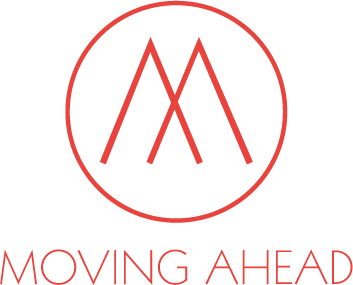A career in sport is so all consuming, and so totally demanding that it can be hard to think past it – to consider, what comes next? Retirement from sport is still a taboo subject, despite the unavoidable truth that every sportsperson will have to fold up their Lycra one day. It’s like it’s an unlucky totem – if you even think about it, might it hasten the end of your career?
But here at Moving Ahead we’ve seen that athletes who plan for career success after sport actually perform better and more consistently when they are still competing.
It’s true that athletes who don’t plan a ‘second life’ are highly susceptible to depression. To be an elite athlete you need to have an addictive personality, perhaps an obsession with perfection. When all your energies have been ploughed in to one sole focus for your entire formative years, no wonder an athlete’s personal identity is so tied up with their sport. They will have made major life choices – which university they go to, what friends they prioritise in their limited time off, and which family events they could attend. Huge sacrifices will have been made. And when sport is gone, what’s left?
This is an experience that Moving Ahead’s Monica Relph, former GB rower, can understand.
She said: “When you’re training every day and so consumed with the next trial or race, you can’t think past it. When rowing was going well I didn’t think about life beyond sport, but when it wasn’t or I was injured, I would be more open to considering what would come next.
“It was hard to accept that I had put the same amount of time, energy and passion into the sport as my friends, but couldn’t call myself an Olympian because of my injury.
“I finally realised that me being angry wasn’t going to affect anyone but me. It was hard to settle in to work but it wasn’t just that – I was having to create a new identity for myself that I could be as proud of as when I was a full-time athlete competing for my country.
“When you stop, you miss the physical training, your friends and the dopamine kick of competition. You can feel lost. Something I’ve found useful is the realisation that you can use all the experience of being an elite athlete and transfer that into the world of work.”
And new research from the University of Stirling proves this link is good for employers as well as athletes. Dr David Lavallee has taken the findings from 1,500 athletes in comparison to a control group, and his evidence demonstrates that athletes have higher employability potential than non-athletes. Not only do they bring a commitment to excellence into work, they also fire up colleagues to be more productive. They feel more confident to carry out a broader and proactive role in the workplace, they are more forward-thinking and change-oriented than non-athletes and they are skilled a ‘job crafting’ – redesigning their jobs to foster positive outcomes.
Elite athletes are institutionalised in the sense that their nutrition, training, clothing, even their sleep patterns have been set down and agreed by a committee of coaches. They are likely to have been surviving on Lottery funding and are unlikely to have much extra set aside. And what about personal relationships? Athletes who retire are likely to have any partnerships seriously tested by the life change. Finally – where will they get that adrenalin rush of competition from now that life is over? At Moving Ahead we’ve seen time and again that finding challenging work is the key to overcoming the hurdles that transitioning athletes face as they redesign their identities.
An Athlete Futures careers fair on 1 November in Coventry has been organised by Moving Ahead on behalf of UK Sport and in conjunction with the British Olympic Association, the British Paralympic Association and the English Institute of Sport to help athletes secure a fulfilling future after their sports career ends. More than 40 organisations are attending the event armed with tangible opportunities such as job shadowing, mentoring, internships and full-time employment. It’s free for elite athletes to attend and we would love to meet you there.
Athletes, companies, organisations and education providers that would like to attend the event can contact Monica Relph at Moving Ahead on 01189 406828 or monica@moving-ahead.org.




